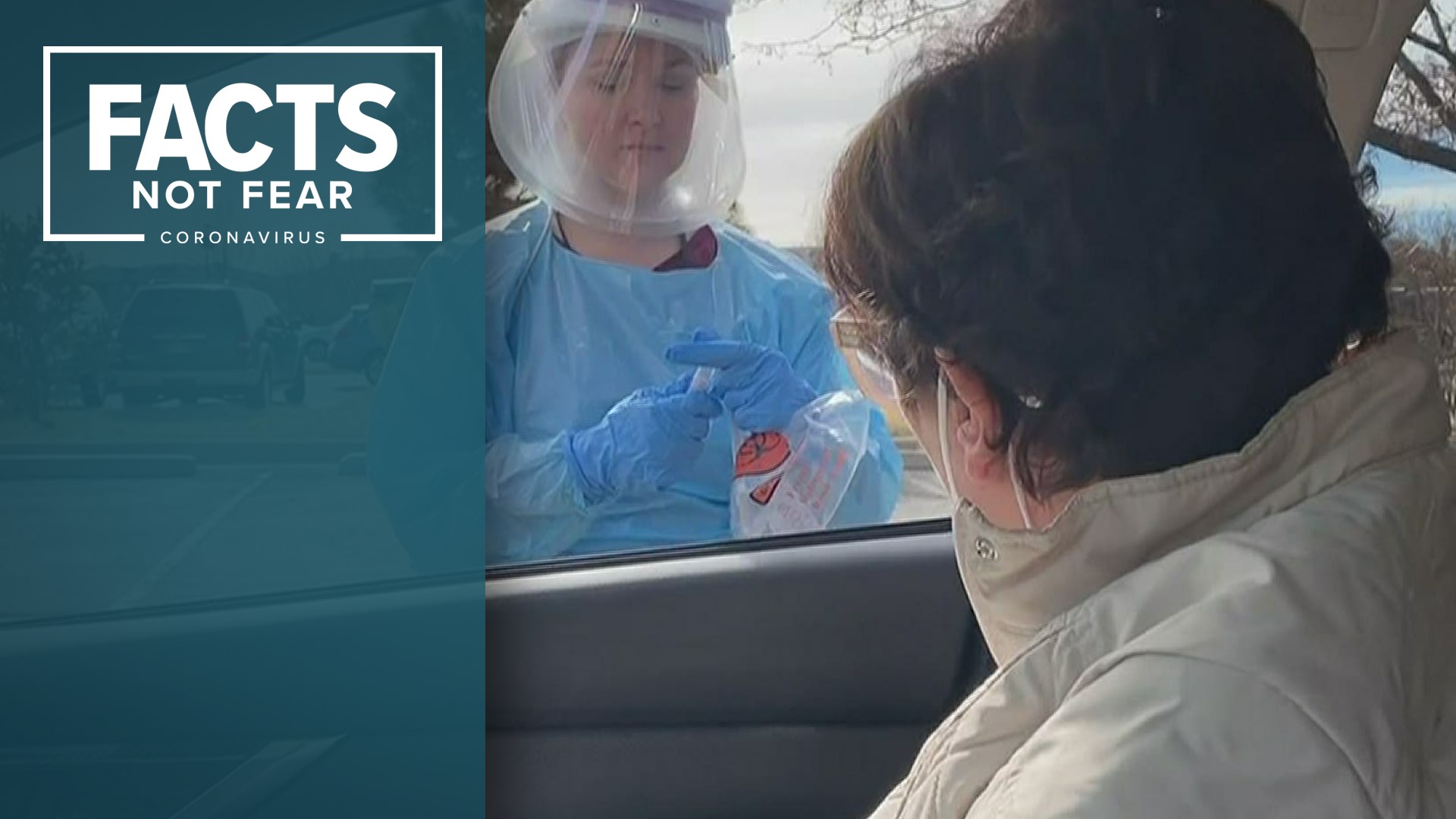ATLANTA — The state has vowed to increase testing in Georgia, and it has. But 11Alive is hearing from people who said they still have some confusion about the testing offered here in Georgia
An 11Alive viewer asked our newsroom: What is the difference in the tests for determining if you have COVID-19 or antibodies?
We took that question straight to the Centers for Disease Control and Prevention's Dr. Jay Butler, who clarified that someone only takes the antibody test weeks after they think they've had the virus.
"So it's not useful when someone is suffering an acute infection, but it is useful to see if someone has been exposed," Butler explained.
Another difference: the antibody test is a blood test. It will not tell someone if they currently have a case of COVID-10 - only if they were exposed at some point, even if they were unaware and didn't show any symptoms.
On the other hand, if someone thinks they currently have the virus, they take a nasal swab to get tested.
Gov. Brian Kemp told reporters Monday he wants to see increased virus and antibody testing as the state continues to reopen, though Butler said the antibody test may not prove if they are immune to getting COVID-19 again.
"Even if we can show the antibodies are protective after infection - that doesn't mean it's lifelong," he cautioned. "We don't know if those antibodies are protective, the science is not there, yet. It's a very hot topic of research."
11Alive is focusing our news coverage on the facts and not the fear around the virus. We want to keep you informed about the latest developments while ensuring that we deliver confirmed, factual information.
We will track the most important coronavirus elements relating to Georgia on this page. Refresh often for new information.

